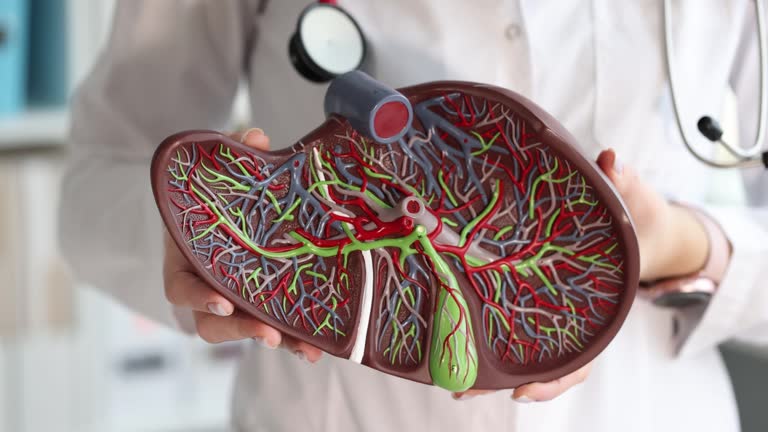A liver transplant is a life-saving procedure for individuals with severe liver disease or liver failure, offering the potential for a dramatic improvement in health and quality of life. On the positive side, a successful liver transplant can alleviate symptoms of liver disease, extend life expectancy, and significantly enhance the recipient's overall well-being. It can enable patients to return to a more normal and active lifestyle. On the downside, liver transplants involve complex surgery, long recovery periods, and a lifetime commitment to immunosuppressive medications to prevent organ rejection.
What is liver transplant?
A liver transplant is a surgical procedure performed to replace a diseased liver with a healthy liver from a donor. This life-saving operation is typically considered when a patient's liver no longer functions properly due to chronicliver diseasessuch as cirrhosis, liver cancer, hepatitis, or acute liver failure. The primary goal of a liver transplant is to extend the patient’s life and improve their quality of life by restoring normal liver function.
The procedure involves several critical steps, starting with the identification of a suitable donor liver. Donor livers can come from two sources: deceased donors and living donors. In the case of deceased donors, the liver is donated by someone who has recently died and whose family has consented to organ donation. Living donors are typically close relatives or friends of the recipient who donate a portion of their liver. Since the liver has a remarkable ability to regenerate, both the donor's and recipient's liver can regrow to normal size within a few months.
Once a suitable donor liver is found, the patient undergoes pre-transplant evaluations to ensure they are healthy enough for surgery. The transplant surgery itself can take several hours and involves removing the diseased liver and replacing it with the donor liver. The new liver is connected to the patient's blood vessels and bile ducts, allowing it to function within the recipient’s body.
Post-surgery, the patient is closely monitored in the intensive care unit (ICU) for any signs of complications, such as bleeding, infection, or rejection.Liver transplantrecipients must take immunosuppressive medications for the rest of their lives to prevent their immune system from attacking the new liver. These drugs help to suppress the immune response, reducing the risk of rejection but also increasing the patient's susceptibility to infections.

Benefits & pros of Liver Transplants
A liver transplant offers numerous benefits and can be a life-saving procedure for individuals suffering from severe liver disease or liver failure.
One of the most significant advantages of liver transplant surgery is the potential to dramatically improve the patient’s quality of life. For those with end-stage liver disease, symptoms such as severe fatigue, jaundice, ascites (abdominal swelling), and encephalopathy (confusion and cognitive impairment) can be debilitating. A successful transplant can alleviate these symptoms, enabling patients to return to a more normal and active lifestyle, free from the constraints of chronic liver disease.
Moreover, liver transplant surgery can significantly extend the life expectancy of patients with liver failure. For many, it offers the only viable option for long-term survival, especially when other treatments have failed or are no longer effective. Advances in surgical techniques and post-operative care have improved the success rates of liver transplants, increasing the likelihood of positive outcomes. Many patients enjoy a lifespan that would have been unattainable without the transplant.
The procedure also provides an opportunity for patients to regain their independence. Severe liver disease often necessitates frequent hospital visits, complex medication regimens, and constant monitoring, which can severely impact a person’s autonomy and ability to work or engage in social activities. Post-transplant, many patients are able to reduce their dependence on medical care and resume daily activities, enhancing their overall sense of well-being and self-sufficiency.

Risks & cons of Liver Transplants
While a liver transplant can offer a new lease on life for those suffering from end-stage liver disease or liver failure, it is not without its significant risks and drawbacks.
One of the primary risks associated with liver transplantation is rejection. The body’s immune system may recognize the transplanted liver as a foreign object and mount an attack against it, leading to graft rejection. To mitigate this risk, patients must take immunosuppressive medications for the rest of their lives. These drugs help to suppress the immune response, reducing the likelihood of rejection, but they also carry potential side effects and complications.
The use of immunosuppressive drugs can lead to an increased susceptibility to infections since the immune system’s ability to fight off pathogens is compromised. Patients are at higher risk for bacterial, viral, and fungal infections, which can be severe and require additional medical treatment. Long-term use of these medications can also result in other side effects, such as high blood pressure, kidney damage, diabetes, and an increased risk of certain cancers.
Surgical complications are another concern. The liver transplant surgery itself is complex and can last several hours. During and after the procedure, there is a risk of bleeding, bile duct complications, blood clots, and infections at the surgical site. Additionally, there may be complications related to anesthesia. Post-operative complications can extend the hospital stay and may require additional surgeries or interventions.

Conclusion
In conclusion, a liver transplant offers a potential lifeline for individuals suffering from severe liver disease, presenting numerous benefits such as improved quality of life, extended life expectancy, and greater independence. However, it is not without significant risks, including the possibility of organ rejection, complications from immunosuppressive medications, surgical challenges, and the emotional and financial burden associated with the procedure. Weighing these pros and cons is essential for patients and their families when considering this life-altering surgery.
Read More